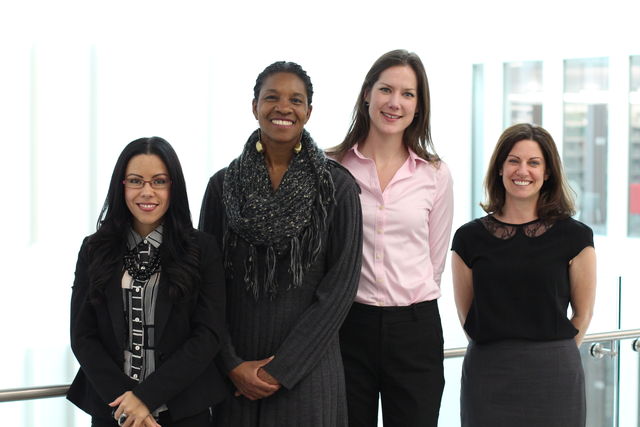One of every four women in Utah will experience domestic violence in their lifetime, but immigrants and refugees have even higher rates and are less likely to report it.
Erika George, a professor in the U law school, saw this statistic and knew changes needed to be made. She and four student researchers gathered data and held meetings to create a report on the issue called “Prevention and Protection Partnerships: Empowerment through Rights Education.”
Funded by the Castle Foundation, the project is meant to explain the unique barriers migrant women face when dealing with law enforcement after being domestically abused, said law student Nubia Peña. The report shows an overall history of laws behind migrant women seeking help, clarifies local laws and provides a list of recommendations.
George, who has worked with international laws and gender equality her whole career, was appalled to see how many laws existing to protect migrant women are not practiced.
“While the laws are on the books, it’s very different in the applied life practice of people who need access to justice and to services and to protection,” George said. “It is a problem.”
She hopes there will be increased legal protections from this report, such as U and V visas, allowing women to petition as a battered spouse regardless of the legal status of either party.
Although these visas are available, they usually reach their cap within the first weeks of January, Peña said.
Peña’s role in this research was to include local victim advocates in the conversation and facilitate discussion groups to explore possible solutions.
Community-based advocates from the YWCA and the Rape Recovery Center met with system-based advocates who work with law enforcement. Peña hopes these groups will work together with victims to make changes.
“We really hope that this is not just a report that is written and forgotten,” she said. “We would like for this to be a guiding document that can maybe help shift and maybe also help form the dialogues that are had in those spaces. We also hope there are partnerships developed.”
There are general misconceptions about immigration and domestic abuse that many people in Utah do not know about. Peña said she hopes this paper will educate community members to practice less victim-blaming and allow victims to be met with more compassion and support.
“Violence can keep women’s ability from participating as full members of society, whether it is in politics or economics or education,” George said. “My personal commitment is to ensure that rights are protected, human beings get respected and women, unfortunately don’t enjoy that globally.”
@carolyn_webber


